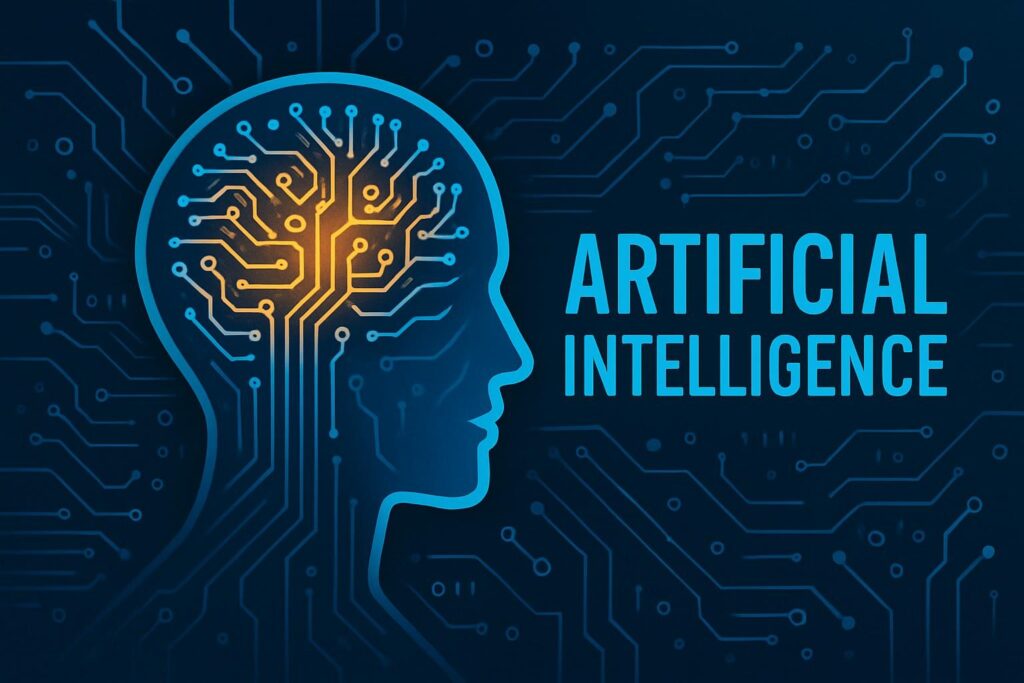
The hiring process has always been a crucial part of business growth, but in 2025, it’s no longer just about human intuition. Artificial Intelligence (AI) is transforming recruitment worldwide, shaping how employers discover, evaluate, and select candidates. From resume screening to video interviews, AI has become a powerful ally in solving hiring challenges at scale. Yet, with opportunity comes responsibility — as this technology redefines fairness, efficiency, and the very future of work. In this comprehensive guide, we’ll explore how AI is changing hiring globally, the benefits and challenges, what it means for job seekers, and what the next decade might look like.
AI’s Growing Role in Recruitment
Recruitment is no longer confined to posting jobs and waiting for applicants. Employers are leveraging AI-powered systems that can scan thousands of applications in seconds, detect patterns in candidate data, and predict success rates. Applicant Tracking Systems (ATS), powered by AI, analyze resumes for skills and keywords — a process that eliminates much of the manual work recruiters once did.
For job seekers, this shift means that understanding how AI reads applications is as important as the skills they bring. Formatting a resume with ATS-friendly structures and avoiding common CV mistakes can make the difference between landing an interview and being overlooked.
How Global Companies Are Using AI
Across the globe, organizations are adopting AI to streamline their hiring. In the United States, Fortune 500 companies rely on AI-driven platforms like HireVue to conduct video interviews that assess tone, word choice, and facial expressions. In Europe, AI recruitment tools focus on compliance with GDPR, ensuring candidate privacy. Meanwhile, Asia’s rapidly growing tech sector leverages AI for large-scale talent acquisition, especially in India and China, where applicant numbers are in the millions.
In Africa, AI is helping solve unique challenges — connecting candidates with opportunities in regions where job access was previously limited. This technology democratizes access, ensuring candidates from rural areas or non-traditional backgrounds can also compete in the digital talent market.
Technologies Driving AI Hiring
- Chatbots: AI chatbots answer candidate queries 24/7, improving employer branding and candidate experience.
- Predictive Analytics: Data models analyze a candidate’s likelihood of success and retention based on historical trends.
- Automated Video Interviews: Platforms evaluate candidates’ language, gestures, and responses, saving hiring teams time.
- AI Resume Screening: Advanced ATS systems detect relevant skills and flag unsuitable applications instantly.
These tools may seem intimidating to job seekers, but with proper preparation — like optimizing cover letters (guide here) and practicing interview responses (interview tips) — candidates can stand out even in AI-driven processes.
Benefits of AI in Hiring
Employers benefit immensely from AI in recruitment. It reduces bias by focusing on skills and qualifications rather than background, gender, or other irrelevant factors. It also improves efficiency: what once took weeks can now be done in days, giving businesses an edge in securing top talent. AI-powered systems also provide deeper insights, like analyzing candidate performance against benchmarks to ensure better hiring decisions.
For candidates, AI can create fairer processes, removing human bias that often creeps into recruitment. It also personalizes job matches, connecting candidates with opportunities aligned with their skills, similar to how job platforms use AI to suggest roles.
Challenges and Ethical Concerns
Despite its benefits, AI in hiring isn’t without challenges. Systems can inherit bias from their training data, perpetuating inequalities if not carefully managed. Privacy is another concern: candidates worry about how their data is stored and analyzed. Transparency is key — applicants want to know if they are being judged by humans or machines.
Governments worldwide are responding. The European Union has introduced regulations around AI ethics, while the U.S. has proposed guidelines for AI transparency in recruitment. Companies that fail to maintain ethical standards risk reputational damage and legal challenges.
External resource: World Economic Forum – Future of Jobs Report 2025
AI’s Impact on Job Seekers
For candidates, AI-driven hiring means adjusting strategies. Instead of generic applications, they must tailor resumes and cover letters with precision. Keywords aligned with job descriptions are critical, as ATS systems scan for exact matches. Resources like top job search strategies help applicants understand these shifts and adapt accordingly.
Soft skills still matter, too. While AI can screen for technical ability, employers value qualities like emotional intelligence and adaptability — traits machines cannot measure with complete accuracy. Professionals preparing for AI-enhanced hiring processes should strike a balance: optimize for machines while showing the human value they bring.
Impact on Employers
For businesses, AI reduces recruitment costs and shortens time-to-hire. Predictive tools help identify not only who to hire but also who is likely to stay longer, reducing turnover. Employers also use AI to assess market salary data, meaning candidates need to be well-prepared when negotiating salaries.
However, the human element remains essential. Companies risk depersonalizing recruitment if they rely solely on AI. Smart organizations are blending automation with human oversight to strike the right balance between efficiency and empathy.
Case Studies of AI in Hiring
- Unilever: Uses AI-driven video interviews combined with game-based assessments to identify candidates with the right traits. This reduced time-to-hire by 75%.
- LinkedIn: AI matches recruiters with talent pools by analyzing user activity and skills data.
- Amazon: Experimented with AI recruitment but pulled back after realizing bias issues — highlighting the importance of human oversight.
These examples show both the potential and the pitfalls of AI. Businesses must adapt responsibly to leverage AI’s benefits while avoiding its risks.
The Future of AI in Hiring
Looking ahead, AI will likely integrate even deeper into the hiring process. We may see AI-powered career advisors guiding job seekers on the most in-demand jobs, fully automated assessments replacing early-stage interviews, and even AI systems helping companies build more diverse teams.
By 2030, recruitment may become a seamless AI-human collaboration where machines handle volume and precision, while humans ensure empathy and fairness.
External resource: OECD Employment Outlook
Expanded FAQs
Q1: How does AI affect resume screening?
AI scans for keywords, formatting, and relevance. Optimizing your application to avoid common CV mistakes is essential.
Q2: Can AI replace human recruiters?
Not entirely. AI handles repetitive tasks, but humans are still crucial for final decisions and cultural fit.
Q3: Is AI hiring fairer?
When designed well, yes. AI reduces unconscious bias, but flawed systems may amplify inequality.
Q4: Should I adjust my job search for AI?
Absolutely. Use tailored resumes, apply smart job search strategies, and learn how ATS systems work.
Q5: Do employers use AI to decide salaries?
Increasingly yes, with benchmarking tools. Candidates should still learn how to negotiate effectively.
Q6: Which countries lead in AI hiring?
The U.S., UK, Germany, India, and China are ahead, with Africa and Latin America rapidly catching up.
Q7: What skills matter most in an AI-driven job market?
AI literacy, adaptability, communication, and emotional intelligence.
Q8: Can AI detect lies in interviews?
Some tools claim to, but reliability is debated. Employers must balance AI insights with human judgment.
Q9: Will smaller companies also use AI?
Yes. As tools become cheaper, even startups are adopting AI to compete for talent.
Q10: What should I do now to prepare?
Learn about AI in hiring, refine your CV, and stay informed about AI-enhanced interview practices.



